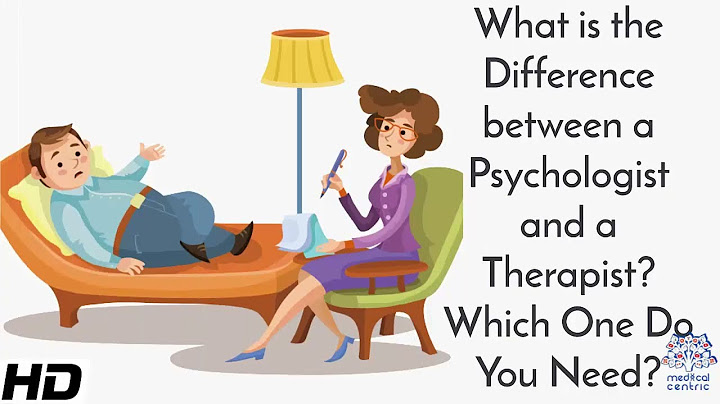Psychiatry is a medical field concerned with the diagnosis, treatment and prevention of mental health conditions. A doctor who works in psychiatry is called a psychiatrist. Unlike other mental health professionals, such as psychologists and counsellors, psychiatrists must be medically qualified doctors who have chosen to specialise in psychiatry. This means they can prescribe medication as well as recommend
other forms of treatment. Most psychiatrists work as part of community mental health teams (CMHTs), in outpatient clinics or hospital wards. Some carry out sessions in GP surgeries. Mental health conditions that may be diagnosed and treated by a psychiatrist include: Psychiatrists may also provide psychological support for people with long-term, painful or terminal physical health conditions. You'll usually need a referral from your GP or another doctor to see a psychiatrist on the NHS. Your GP may refer you directly to a psychiatrist or to a member of a local mental health team, who can assess your needs and help determine if you need to see a psychiatrist or a different mental health professional. You can also see a psychiatrist privately, although most private psychiatrists prefer a
referral from your GP. Your GP may be able to recommend psychiatrists in your area. You can also try contacting a psychiatric clinic directly or using online psychiatry services. You'll see a psychiatrist who specialises in the area of psychiatry most relevant to your situation. The main areas of expertise include:
You can check the details of a psychiatrist, including their area of speciality, by looking on the medical register, a list of doctors in the UK. If they have the letters MRCPsych (Member of the Royal College of Psychiatrists) or FRCPsych (Fellow of the Royal College of Psychiatrists) after their name, they're a current member of the Royal College of Psychiatrists (RCPsych). What happens during your appointmentsDuring your first appointment, your psychiatrist will carry out an initial assessment. They'll look at both your mental and physical health, and may ask:
After assessing your condition, your psychiatrist may prescribe medication or recommend other treatments, such as counselling or cognitive behavioural therapy (CBT). The number of times you need to see a psychiatrist and the length of each appointment will depend on your circumstances. A psychiatrist may continue to manage your treatment or they may refer you to other community mental health services in your area. These services work in small units or clinics and aim to help people manage their illness so they can lead a normal life within the community. Further information and supportThe Royal College of Psychiatrists (RCPsych) has mental health information in a number of areas, including problems and disorders, support and treatment, and advice for parents or carers and young people.
 Questions and AnswersA psychiatrist is a medical doctor with extra training in mental health who can choose to prescribe
medications. Some use psychotherapy (‘talk therapies’) approaches like cognitive-behavioural therapy to treat mental health problems. Many psychiatrists work at hospitals, clinics, or health centres, and some have a private office. As they are specialist doctors, you will almost always need another doctor’s referral to see a psychiatrist, and fees are covered by MSP. If you have a valid BC Services or CareCard, you do not need to pay to see a psychiatrist. A registered psychologist focuses
on different talk therapy or counselling approaches to treatments, but they don’t prescribe medication. They have graduate degrees in psychology. There are two different ways to access registered psychologists: the public system and the private system. Registered psychologists in the public system work in some hospitals or schools. You may need a doctor’s referral to access the program, and costs are usually covered by MSP. However, most people need to access registered psychologists through the
private system. To do this, you can contact the psychologist yourself—you do not need a referral. Costs are not covered by MSP, but they may be covered by employee health plans. A registered psychologist’s fees charged by hour vary, and some offer lower fees to people with lower incomes. You’ve probably noticed that a lot of the differences come down to how you pay for different services and how these professionals are educated. The practical differences in how they work are not always so
clear. When it comes to your treatment and care, the most important part is finding a professional who supports your own goals. Are you really focused on fine-tuning medications? Are you looking for a particular therapy approach? Does the professional’s philosophy of care make sense to you? Do you like the professional you’re talking to and do you feel safe sharing your experiences? Ultimately, your relationship with the professional is what matters. Instead of focusing on designation, look for
a professional who meets your needs and your expectations. How can I find a psychiatrist or a registered psychologist?
Where can I learn more?
About the author The Canadian Mental Health Association promotes the mental health of all and supports the resilience and recovery of people experiencing a mental illness through public education, community-based research, advocacy, and direct services. Visit www.cmha.bc.ca. © 2015 | Back to Q&A | Email us a question Stay ConnectedSign up for our various e-newsletters featuring mental health and substance use resources. |

Related Posts
Advertising
LATEST NEWS
Advertising
Populer
Advertising
About

Copyright © 2024 ihoctot Inc.

















